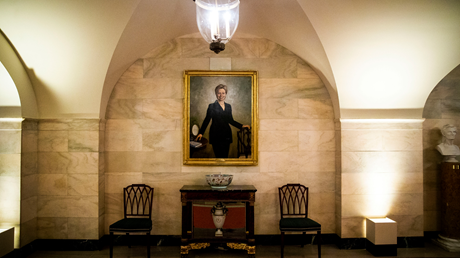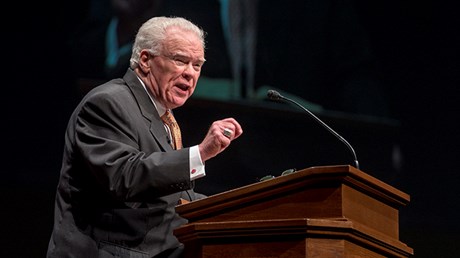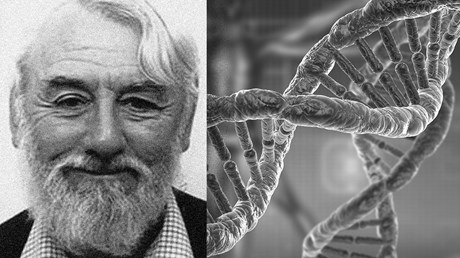Monday, 30 April 2018
Prosociality, Happiness, and Socially Desirable Responding
from
http://www.patheos.com/blogs/tippling/2018/04/30/prosociality-happiness-and-socially-desirable-responding/
Study: Clinton Voters Twice as Likely to Leave Evangelicalism as Trump Voters
How political divides impact religious affiliation and attendance.

The 2016 presidential election heightened an ongoing discussion over the allegiance of American evangelicals to the Republican Party.
As countless articles and social media posts have observed, Donald Trump’s presidency has led many church leaders to warn against a too-warm embrace of politics and politicians, as well as led many Christians to rethink their involvement and identity as evangelicals.
Though these tense conversations may feel like new ground born out of this political moment, long before Trump’s election there was already strong evidence showing that Americans’ political identities and disagreements fuel their religious identities and practices.
In other words, what we’re seeing now comes as no surprise to political scientists.
Recent research from Paul Djupe, Jake Neiheisel, and Anand Sokhey shows that over the last 15 years, people who disagreed with the political leanings of their clergy and congregations were much more likely to start skipping services or stop attending altogether. Their research before and after the 2016 election found that disagreement over Trump in evangelical churches sent a number of members heading for the exits.
In her new book, From Politics to the Pews, University of Pennsylvania professor Michele Margolis argues that partisan identities become fixed in early adulthood, a time when people tend to take a break from religion. When they consider coming back later in their 20s and 30s, they align their religion with their political identity. Typically, Democrats will stay away, and Republicans will select a Republican-aligning church.
So is evangelicalism really losing members due to disagreements over presidential candidates?
Over the past seven years (in 2011, 2012, ...
from
http://feeds.christianitytoday.com/~r/christianitytoday/ctmag/~3/1x2OzAxnBp8/clinton-trump-voters-evangelical-identity-2016-election.html
Sectarian Cinema: Oscars Highlight Muslim Defense of Persecuted Christians
“Watu Wote” shows the power and limits of African and Arab films to probe interfaith relations.

Two years ago, the heroic actions of some Kenyan Muslims brought their majority-Christian nation together. The Oscar-nominated film depiction of that heroism may do so again—if many people watch.
Watu Wote is a fictional retelling of real-life horror. In December 2015, al-Shabaab terrorists stormed a bus headed toward the border with Somalia and demanded Christian passengers separate for targeted execution. Muslim passengers responded, “If you want to kill us, then kill us. There are no Christians here.” The Christian women were given hijabs to wear, while the Christian men were hidden behind bags.
They knew the danger. One year earlier in a similar bus attack, Muslim militants killed 28 Christians who failed to correctly say the Islamic creed.
Filmed on location in Swahili and Somali, the 22-minute film was nominated for the Live Action Short Film category at the 90th Academy Awards.
“The film captures an issue close to Kenyan hearts, that apart from religious differences, we are all Kenyan,” said Timothy Ranji, bishop of the Anglican diocese of Mt. Kenya South. “The downside is that it will be watched by very few Kenyans.”
Access to film is limited in Kenya. The nation ranks 77th worldwide in terms of cinemas per capita, according to UN data. Radio is a far more effective means of communication in the East African nation, Ranji said.
And some, like William Black, may choose not to watch it. “The movie tells a good story, I’m sure,” said the American Orthodox missionary and professor at St. Paul’s University in Limuru, Kenya. “But it hits too close to home.”
Black believes that terrorists want to push Kenya to the tipping point. “The narrow focus ...
from
http://feeds.christianitytoday.com/~r/christianitytoday/ctmag/~3/LdfGfRJ8zEk/watu-wote-oscars-nominee-kenya-muslim-christian-persecution.html
One-on-One with Brian Dembowczyk on ‘Cornerstones’
Cornerstones is a discipleship tool for parents to use with their children and an approachable systematic theology book for parents.

Ed: What is the basic premise of Cornerstones?
Brian:Cornerstones is a pair of books—one for children and the other for parents—that covers the basic doctrines of the faith in a question-and-answer format, like a catechism. Years ago, when I was in seminary, I learned how the early church had used catechisms to train believers in the faith and I decided that I wanted to use this approach with my children.
So I searched for one to use, but the ones I found either had a theological bias, missed topics I wanted to cover, or had questions that were too complex or wording that wasn’t kid-friendly. So I wrote my own. At that time, I think I had about 100 questions.
My wife and I used that homemade resource with our kids for several years and it worked really well. My kids were learning and they seemed to enjoy our times “doing the questions.” As a family, we were having some great conversations about God. I think the question-and-answer format gave them doctrine in bite-sized morsels they could digest.
I was serving in local church ministry, so I crafted a version to share with families in the churches where I served. I also added brief explanations to some of the questions and answers to help these parents understand the big doctrinal ideas they were rubbing shoulders with.
After I started working at LifeWay, I shared this idea with the B&H Publishing team and they not only liked the concept, but they wanted to take it farther. They recognized how important it is to equip parents, so they had the idea of providing a second book for parents—the Parent Guide—with longer explanations for each question and answer. The questions and answers were expanded as well—there are 200 in Cornerstones, ...
from
http://feeds.christianitytoday.com/~r/christianitytoday/ctmag/~3/jGq_iJqlnPI/one-on-one-with-brian-dembowczyk-on-cornerstones.html
How Paige Patterson Compares to Other Pastors on Divorce After Abuse
After audio of old comments circulates on social media, Southern Baptist leader clarifies his pastoral approach to domestic violence.

On Sunday, Southern Baptist leader Paige Patterson spoke out to address his position on domestic violence after old comments he made regarding counseling women in abusive marriages circulated on social media over the weekend.
Patterson, the president of Southwestern Baptist Theological Seminary (SWBTS) and a key player in the Conservative Resurgence of America’s largest denomination, said that his past statements—discouraging women from divorcing in cases of abuse and celebrating the faith of a woman whose prayers led her to be hit by her husband—had been misrepresented and mischaracterized.
He clarified both instances in an SWBTS press release on Sunday, adding that he has “never counseled or condoned abuse of any kind” and that “any physical or sexual abuse of anyone should be reported immediately to the appropriate authorities, as I have always done.”
Patterson said he has advised and helped women to leave abusive husbands, but stood by his commitment to never recommend divorce: “How could I as a minister of the gospel? The Bible makes clear the way in which God views divorce.”
Among Patterson’s remarks being shared on Twitter is an audio clip said to be from a conference in 2000, where he was asked about cases where a woman is being asked to submit to an abusive husband. In the recording, he says separation should be reserved for only “the most serious of cases” and divorce is “always wrong counsel.”
Overall, American pastors are more likely to condone divorce in cases of domestic violence than for other commonly cited reasons for ending a marriage. Though almost half of American evangelicals (46%) say divorce due to abuse is sinful, only ...
from
http://feeds.christianitytoday.com/~r/christianitytoday/ctmag/~3/KxGFmXxwG7A/paige-patterson-divorce-domestic-abuse-swbts-cbmw.html
Sunday, 29 April 2018
Morality, Equality of Opportunity and Inevitable Homogeneity
from
http://www.patheos.com/blogs/tippling/2018/04/29/morality-equality-of-opportunity-and-inevitable-homogeneity/
Saturday, 28 April 2018
Inheritance Tax: Why We Don’t Like It, but (Rationally) We Should
from
http://www.patheos.com/blogs/tippling/2018/04/28/inheritance-tax-why-we-dont-like-it-but-rationally-we-should/
Pruitt Signs Proposed Rule to Limit Science at EPA
from
http://www.patheos.com/blogs/tippling/2018/04/28/pruitt-signs-proposed-rule-to-limit-science-at-epa/
Friday, 27 April 2018
It’s Not Billy Graham Rule or Bust
15 ways my husband and I guard our marriage while still loving our friends of the opposite sex.

With recent allegations of indiscretion against a prominent megachurch pastor, some Christian leaders have doubled down on the so-called Billy Graham Rule, which dictates that men and women should never meet alone.
Southeastern Baptist Theological Seminary president Danny Akin tweeted, “A valuable lesson we all can learn from this tragic situation: follow the @BillyGraham rule. If you are married, never be alone with someone of the opposite sex who is not your spouse. Never!”
This rule, in its most pristine form, renders male-female friendships impossible. However unintentionally, it communicates to women that they are fundamentally dangerous. And it bars men from meaningful mentorship or pastoral care of women and vice-versa.
I, for one, give thanks for the many men I know who broke the Billy Graham Rule.
My life has been enriched by male friends, mentors, coworkers, and collaborators. My husband has female friends as well and, for that, I am glad. And my husband and I are priests so we need to meet with the opposite sex often to do our job well. (But even if we weren’t, we’d likely need to meet with the opposite sex to do any job well).
Yet, I understand the motivation behind the Billy Graham Rule: a healthy and honest fear of falling into adultery, a sin as massively destructive as it is common. (The rule itself draws from Graham’s “Modesto Manifesto,” a broader set of guidelines the evangelist used to safeguard his ministry against scandal.)
One could argue the Billy Graham Rule is as natural as buckling our seatbelt in our car. It is actually wise to take measures to protect ourselves from things that can destroy us, whether it be a vehicular fatality or a one-night stand. It is not ...
from
http://feeds.christianitytoday.com/~r/christianitytoday/ctmag/~3/7yj3TbrhUGE/its-not-billy-graham-rule-or-bust.html
The Myth of the Holy Hierarchy
UK scientist R.J. ‘Sam’ Berry (1934-2018): a real scientist with real faith

“As a Christian at university, I was faced with a hierarchy of possibilities. The really holy people became missionaries, the rather holy people were ordained, and the fairly holy people became teachers; the ‘also rans’ did all the other jobs in the world,” so wrote R. J. Berry in his book Real Science, Real Faith. Having discovered that he either couldn’t or shouldn’t do any of the “holy” jobs, Berry, known to most as Sam, eventually realized “that we have all been given different talents and callings, and that there is not (and should not be) such a thing as a typical or normal Christian.”
Sam Berry was anything but a normal Christian. He attended his local church regularly, went to the monthly prayer meetings whenever he could, and served on the church council. For the last 30 years of his life he was licensed to preach, and for about 20 years he took part in national synod meetings. This would have been a huge commitment on top of a regular job and raising three children, but Sam was a high-capacity person who was not content to conform to the stereotype of “also-ran”—those who run races but never win. He demonstrated to the best of his ability that every single Christian is in full-time ministry.
As professor of genetics at University College London, Sam studied island populations (especially mice), which often involved field trips to remote Scottish islands. He was a distinguished biologist and published work on evolutionary and ecological genetics, biodiversity, and conservation biology, and was the president of several prestigious scientific societies. His final academic contribution, a book titled Environmental Attitudes Through Time was ...
from
http://feeds.christianitytoday.com/~r/christianitytoday/ctmag/~3/iZ_czRp5sEY/sam-berry-myth-of-holy-hierarchy-science-faith.html
Interview: Inside the Nixon Years
Chuck Colson tells the inside story of the most controversial relationship in Graham's life.

Billy Graham's relationship to President Richard Nixon was a tricky one, Charles Colson said in this exclusive interview before his death in 2012. As special counsel for Nixon before his own conversion to Christ, Colson often assisted in arranging meetings between Nixon and Graham. As a result, he witnessed interactions between the two men, which he shared with Christianity Today editor in chief Mark Galli.
In what type of settings would you have interacted with Billy Graham and President Nixon?
Graham came in to do church services on Sunday mornings. He also came in on a number of occasions just to visit with the president and stop in and see some of us at the various offices. On many occasions when I was with them, I would ask the president if he wanted me to leave and he generally said yes. I can think of few other people that Nixon ever spent time with totally alone without someone sitting with them. They had that kind of an intimate relationship; he trusted Billy completely.
What do you think of William Martin's assertion, "No president ever made such a conscious, calculating use of religion as a political instrument as did Richard Nixon"?
Part of my role as Nixon's assistant was to mobilize the religious community, find those disaffected Democrats and win them over. It was said at the time that it was the first time there had been this sort of concerted effort to get religious people into the White House.
I asked many religious leaders for access to their mailing lists. Even in 1972, it was pretty sophisticated to do this. We were aiming at a 20-million-voter database so we could identify by precincts. Graham had a list of evangelicals that was pure gold, and we asked him for it. His assistants checked ...
from
http://feeds.christianitytoday.com/~r/christianitytoday/ctmag/~3/eHJ1DFrjcqU/inside-nixon-years.html